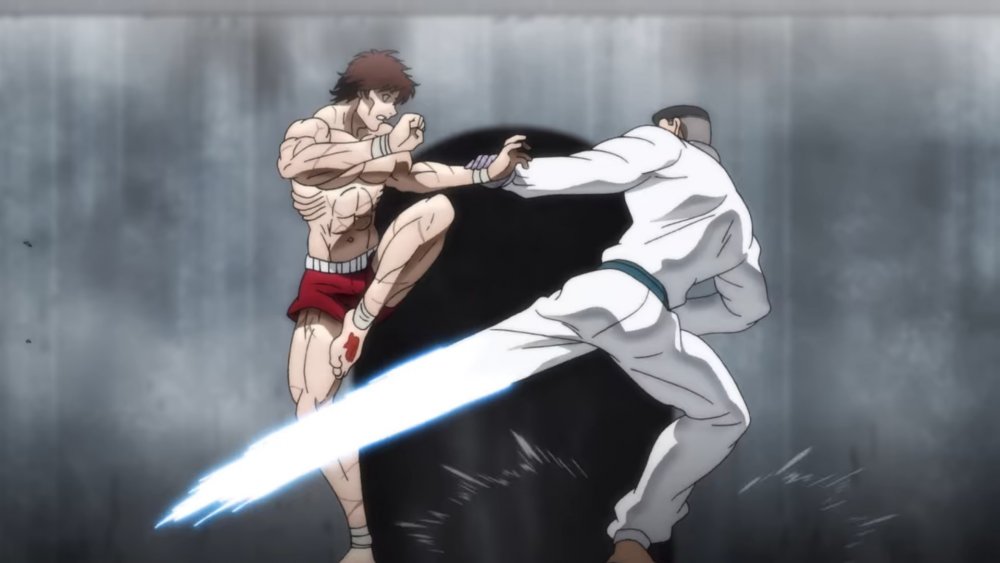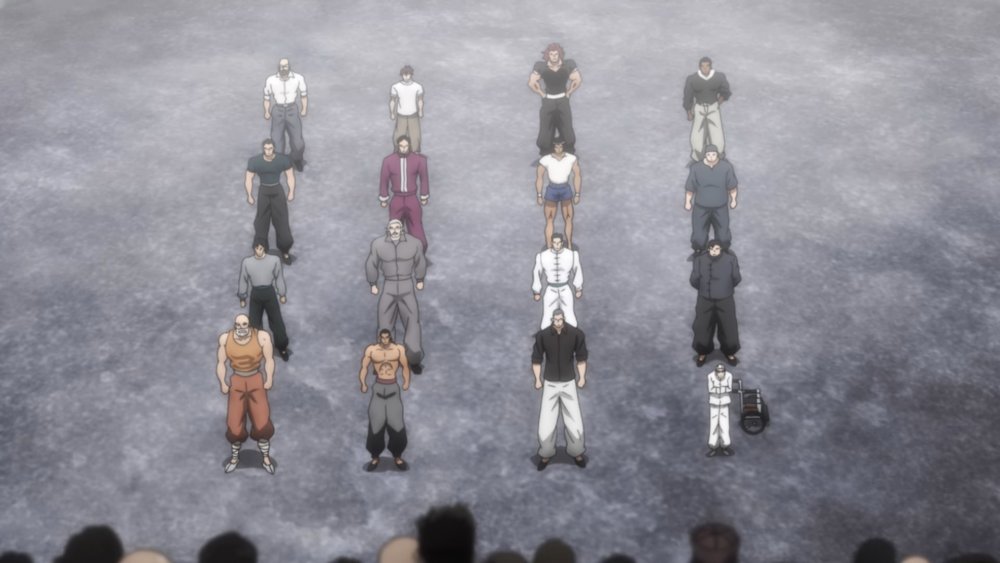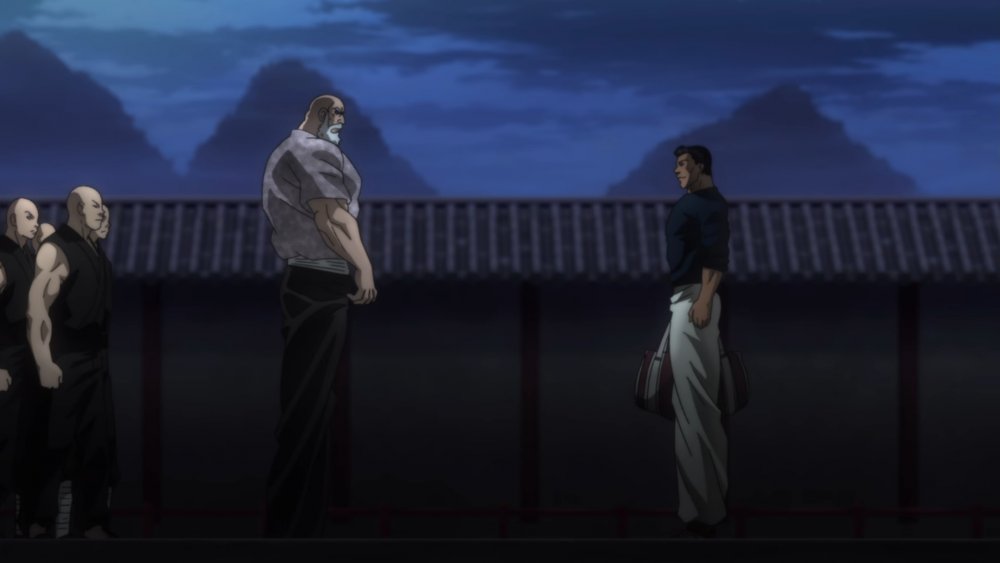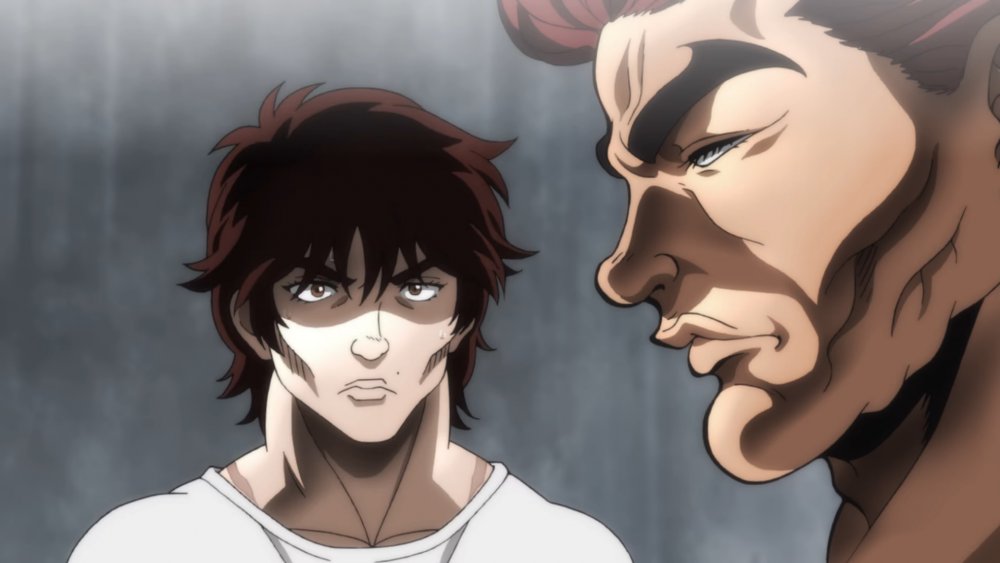The Unexpected Martial Arts Anime Series That's Killing It On Netflix
Daddy issues have always been a rich source of inspiration for the arts, but the Netflix original anime Baki takes this trope to a whole new level. The third season of this brutal series dropped on June 4, and it has already landed itself on the list of the streaming service's top ten most viewed TV shows.
At the center of the series is Baki Hanma, a world-renowned fighter who has a singular mission in life: best his father in combat. We should mention that his father is known as the single strongest martial artist in the world. No pressure, right? Don't worry that the series only focuses on our hero training and making protein shakes. For Baki, the only way to get strong enough to challenge dear old dad is to brutalize other fighters in a never-ending series of bloody bare-knuckle dust-ups. In the third season, which is subtitled "The Great Raitai Tournament Saga," our hero joins a tournament known for attracting some of the best combatants in the world.
If you're intrigued by the show's brutally simplistic premise, here's some more info about Baki, the latest anime blowing up on Netflix.
Baki is based on a long-running manga series
Baki's latest season may be the fresh, hot thing on Netflix, but the anime itself is hardly a new property. Two previous seasons (or one long season split into two parts, depending on how you view it) launched on the streaming platform in 2018. The storyline those follow is known as "Most Evil Death Row Convicts," and if you were confused about that title, the story features our hero doing battle with five of the titular most evil death row convicts.
But Baki actually got its start long before this current Netflix iteration. It began life as a manga series titled Baki the Grappler. The first edition was published in 1991 and ran until 1999. Since then, there have been a number of sequel and spin-off manga series, with the latest being published in 2018.
Of course, where there's manga, there's often an anime adaptation, and Baki has seen several before the character landed on Netflix. The series even has a number of video game adaptations, although the games were barely released outside of Japan.
Baki is what's known as a fighting anime
The plot of Baki is fairly simple: the young brawler must fight his way through a series of adversaries of increasing strength and brutality. While that may feel a little lean for some, it is no accident. The Baki series belongs to a particular sub-genre of anime simply referred to as either fighting anime or action anime.
Some other popular titles from this genre include the Dragonball Z series and Fullmetal Alchemist. According to Anton Wong at Anime Impulse, the draw to this genre is the intensity of the battles: "Fighting anime appeals to many... because of its fun, hot-blooded, quick paced action sequences.
The wild fighting scenes aren't the only reason that fans are drawn to the genre, however. Wong notes that it's common for fighting anime to "focus on a coming-of-age aspect as well." This seems especially apt for the titular hero of Baki. While viewers watch him go toe-to-grotesquely-muscular-toe with some of the greatest fighters in the world, we're also watching him grow as a combatant and a person. There's also a deeply personal mission at the heart of the story, which is Baki's desire to best his own father. The action may take center stage, but the underlying pathos is also deeply important.
Don't expect an English dub just yet when you watch Baki on Netflix
For decades, anime fans have debated over an important choice: subs or dubs? Writing for Reel Rundown, Jennifer Wilber describes why some non-Japanese-speaking anime fans strongly prefer the original Japanese audio track with English subtitles. "One of the main reasons that purists give for preferring subs is that subtitles allow them to experience the anime the way the creators meant for it to be seen," Wilber explains. "These fans view anime as an artform, and do not believe that it should be altered in any way."
On the other hand, those who prefer dubbing, wherein an audio track featuring dialogue in another language is used, find it easier to engage with the animation when the dialogue is in their native language. For fear of stoking the rage of partisans on either side, we won't weigh in on the debate — each way of watching has its strengths and its drawbacks. However, for the time being, people who strongly prefer dubbing may want to wait to tune into Baki's third season.
At the time of writing, the release of an English audio track is delayed due to the industry-wide shutdown on TV and film productions. A message on the series' home page on Netflix reads, "Some audio languages are delayed. We're prioritizing voice actor safety." We don't know exactly when you can expect to hear an English audio track for Baki season 3, but if you're a dubbing die-hard, maybe it's a good opportunity to see how the other half views their anime.



